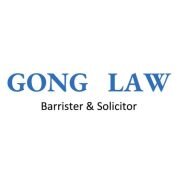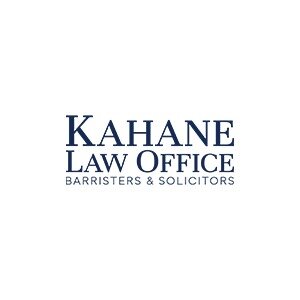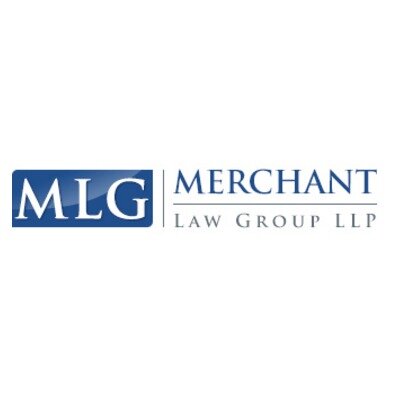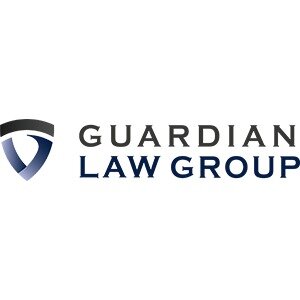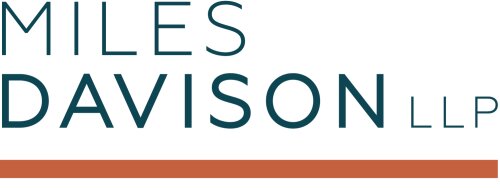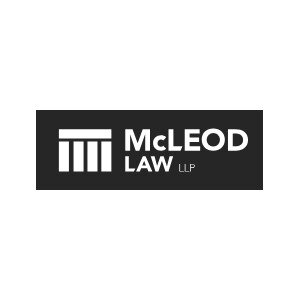Best Business Lawyers in Calgary
Share your needs with us, get contacted by law firms.
Free. Takes 2 min.
List of the best lawyers in Calgary, Canada
Canada Business Legal Articles
Browse our 1 legal article about Business in Canada written by expert lawyers.
- IP Strategy for Canadian Startups: Patent vs. Trade Secret
- Intellectual property (IP) in Canada is governed by a "first-to-file" system, meaning the first person to file a patent application generally has priority over earlier inventors who did not file. Patents offer a 20-year legal monopoly in exchange for public disclosure, while trade secrets provide indefinite protection as long as... Read more →
About Business Law in Calgary, Canada
Business Law in Calgary, Canada encompasses all the legal regulations and requirements that govern businesses and commercial activities in this city. Calgary, located in the province of Alberta, is a dynamic business hub with a strong entrepreneurial spirit. Whether you are starting a new business, expanding an existing one, or dealing with various legal aspects of business operations, understanding the local laws is crucial to ensure compliance and protect your interests.
Why You May Need a Lawyer
There are several common situations where seeking legal help in business is highly recommended:
- Starting a business: Forming a legal entity, drafting partnership agreements, or creating contracts with suppliers and clients require legal expertise to safeguard your rights and ensure the legality of your business structure.
- Contract disputes: When dealing with breaches of contract, disagreements over terms, or contract negotiations, a lawyer can provide guidance, protect your interests, and help resolve the dispute effectively.
- Employment issues: From drafting employment contracts and ensuring compliance with labor laws to handling employee disputes and terminations, legal assistance can help you navigate complex employment matters.
- Intellectual property: Protecting trademarks, copyrights, and patents is crucial for many businesses. A lawyer can guide you through the process of registration, enforcement, and defense of your intellectual property rights.
- Government regulations: Complying with local, provincial, and federal regulations can be challenging. A lawyer will ensure that your business follows all necessary rules and regulations to avoid penalties or legal issues.
Local Laws Overview
Businesses in Calgary must adhere to a range of local laws governing various aspects of their operations. Here are some key aspects of local laws that are particularly relevant to business in Calgary, Canada:
- Business licensing: Calgary requires many types of businesses to obtain a license to operate legally. The process and requirements may vary depending on the nature of the business.
- Employment standards: Calgary follows provincial employment standards, including minimum wage, overtime regulations, and rest periods. It is crucial to understand and comply with these standards to avoid legal consequences.
- Contract law: Contractual agreements are vital for business transactions. Understanding the fundamentals of contract law is essential to create enforceable contracts and protect your rights in case of disputes.
- Taxation: Businesses must comply with federal and provincial tax regulations, including corporate income tax, goods and services tax (GST), and payroll taxes.
- Consumer protection: These laws ensure fair practices in consumer transactions and protect customers from fraudulent or deceptive practices.
Frequently Asked Questions
1. Do I need to register my business to operate in Calgary?
Yes, most businesses operating in Calgary need to register with the provincial and federal governments. The registration process may vary depending on the type and structure of your business.
2. How can I protect my business's intellectual property?
To protect your business's intellectual property, such as trademarks, copyrights, and patents, you should consider consulting a lawyer who specializes in intellectual property law. They can guide you through the registration process and help you enforce and defend your rights.
3. What are the legal requirements for hiring employees in Calgary?
Calgary follows the employment standards set by Alberta's provincial government. As an employer, you must comply with regulations related to minimum wage, overtime, vacation pay, termination, and other employment-related matters. Familiarize yourself with the Employment Standards Code and consult with a lawyer to ensure compliance.
4. What steps should I take to resolve a contract dispute?
If you find yourself in a contract dispute, consider the following steps:
- Review the contract thoroughly.
- Communicate with the other party to resolve the issue informally.
- Consult with a lawyer to assess your rights and options.
- Consider mediation or negotiation to reach a settlement.
- If necessary, pursue litigation with the guidance of your lawyer.
5. Where can I find legal assistance for my business in Calgary?
There are numerous law firms in Calgary that specialize in business law. Research and choose a reputable firm with experience in the specific areas of law relevant to your business. You can also contact the Law Society of Alberta for recommendations.
Additional Resources
- Calgary Chamber of Commerce - Offers resources, networking opportunities, and support for businesses in Calgary: www.calgarychamber.com
- Government of Canada - Official website providing information on business regulations, taxation, and legal requirements: www.canada.ca
- Law Society of Alberta - Regulatory body for lawyers in Alberta, providing resources and lawyer directories: www.lawsociety.ab.ca
Next Steps
If you require legal assistance for your business in Calgary, consider following these steps:
- Identify the specific area of business law you need help with (e.g., contract law, employment law, intellectual property).
- Research and select a reputable law firm or lawyer specializing in the relevant area.
- Contact the chosen law firm and schedule a consultation to discuss your specific legal needs.
- Prepare any necessary documentation or information to share with your lawyer during the consultation.
- During the consultation, discuss your concerns, ask questions, and evaluate whether the lawyer is the right fit for your business's legal needs.
- If you are satisfied with the consultation, proceed with engaging the lawyer's services and discuss the necessary steps to address your legal matters.
Lawzana helps you find the best lawyers and law firms in Calgary through a curated and pre-screened list of qualified legal professionals. Our platform offers rankings and detailed profiles of attorneys and law firms, allowing you to compare based on practice areas, including Business, experience, and client feedback.
Each profile includes a description of the firm's areas of practice, client reviews, team members and partners, year of establishment, spoken languages, office locations, contact information, social media presence, and any published articles or resources. Most firms on our platform speak English and are experienced in both local and international legal matters.
Get a quote from top-rated law firms in Calgary, Canada — quickly, securely, and without unnecessary hassle.
Disclaimer:
The information provided on this page is for general informational purposes only and does not constitute legal advice. While we strive to ensure the accuracy and relevance of the content, legal information may change over time, and interpretations of the law can vary. You should always consult with a qualified legal professional for advice specific to your situation.
We disclaim all liability for actions taken or not taken based on the content of this page. If you believe any information is incorrect or outdated, please contact us, and we will review and update it where appropriate.
Browse business law firms by service in Calgary, Canada
Calgary, Canada Attorneys in related practice areas.




